Weekly Anger, Behavior, and Goals Tracker
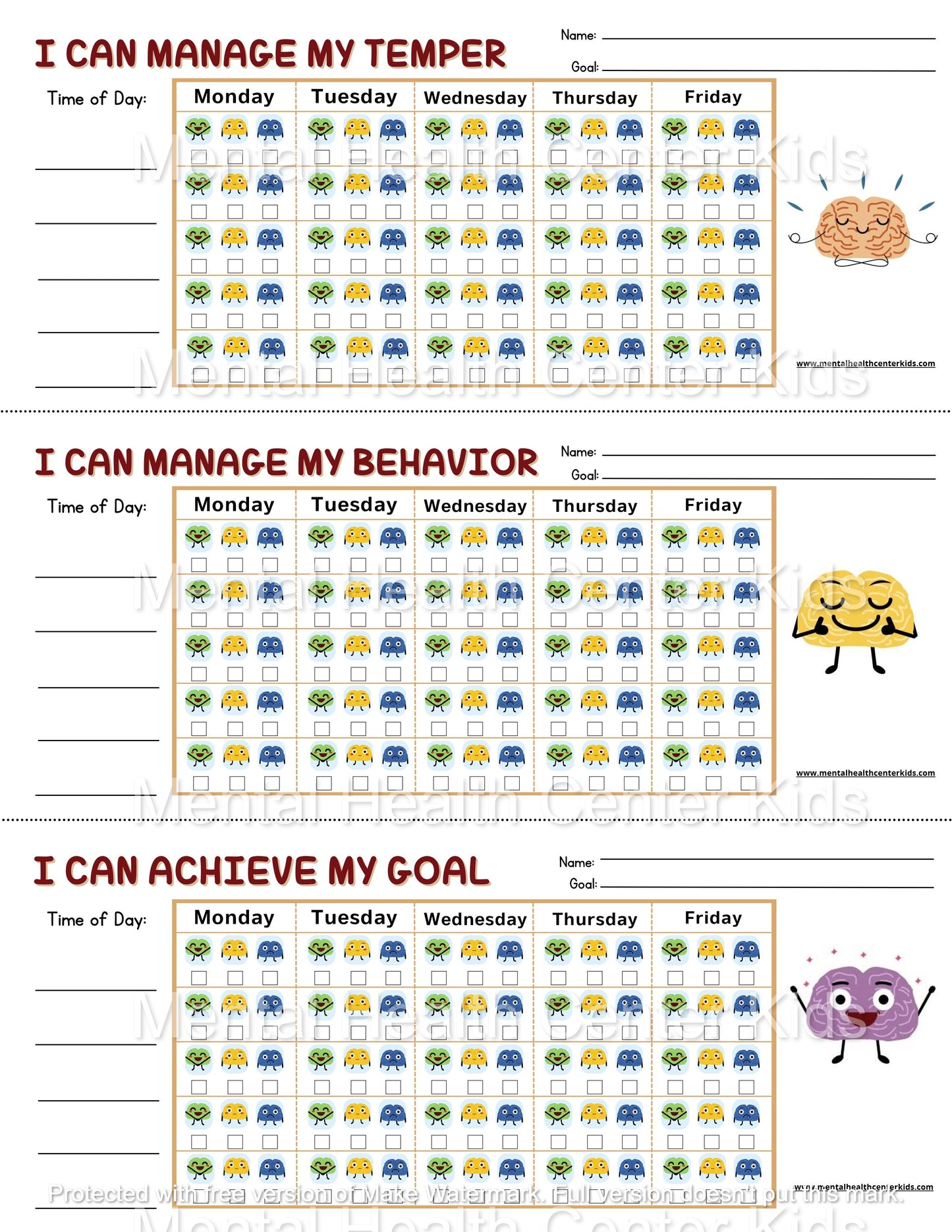
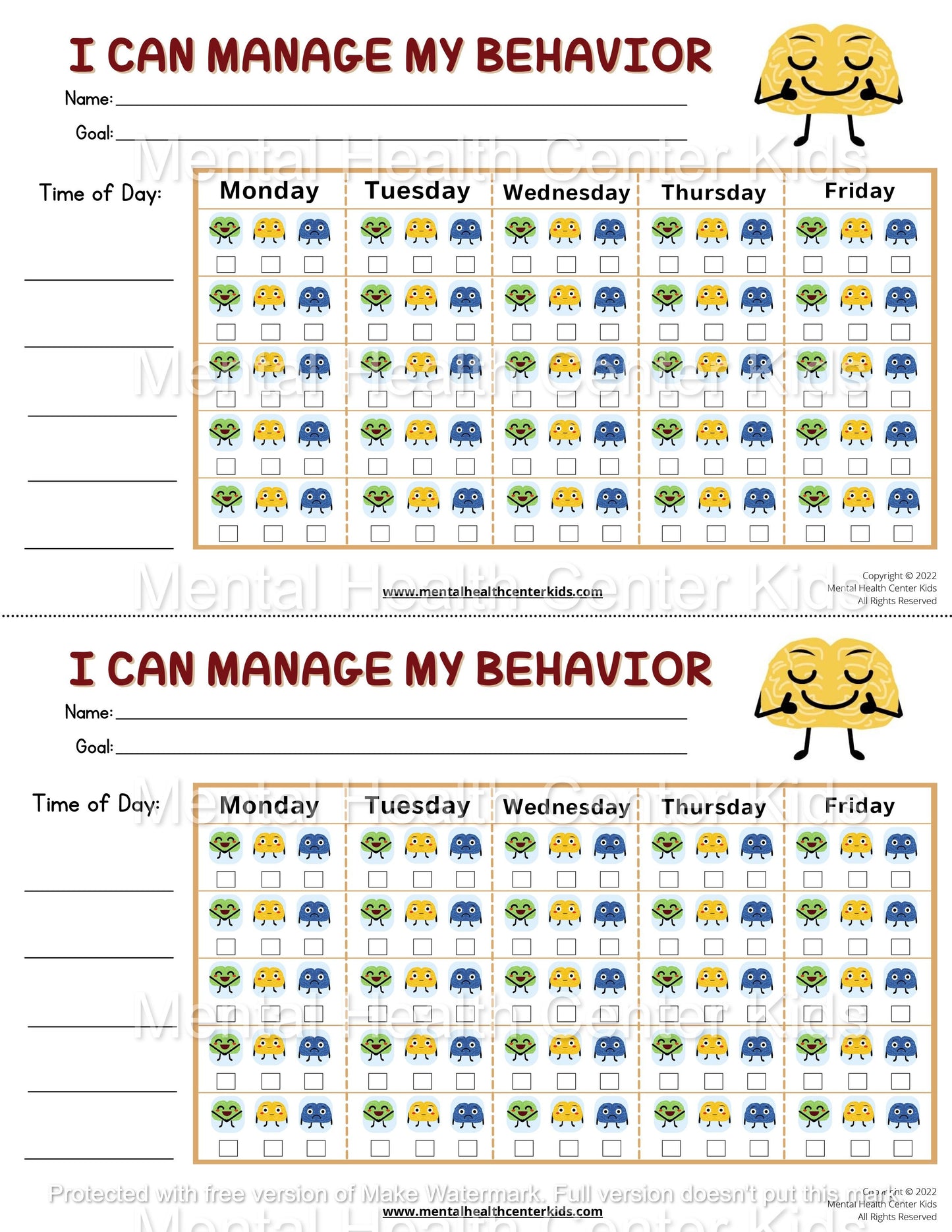
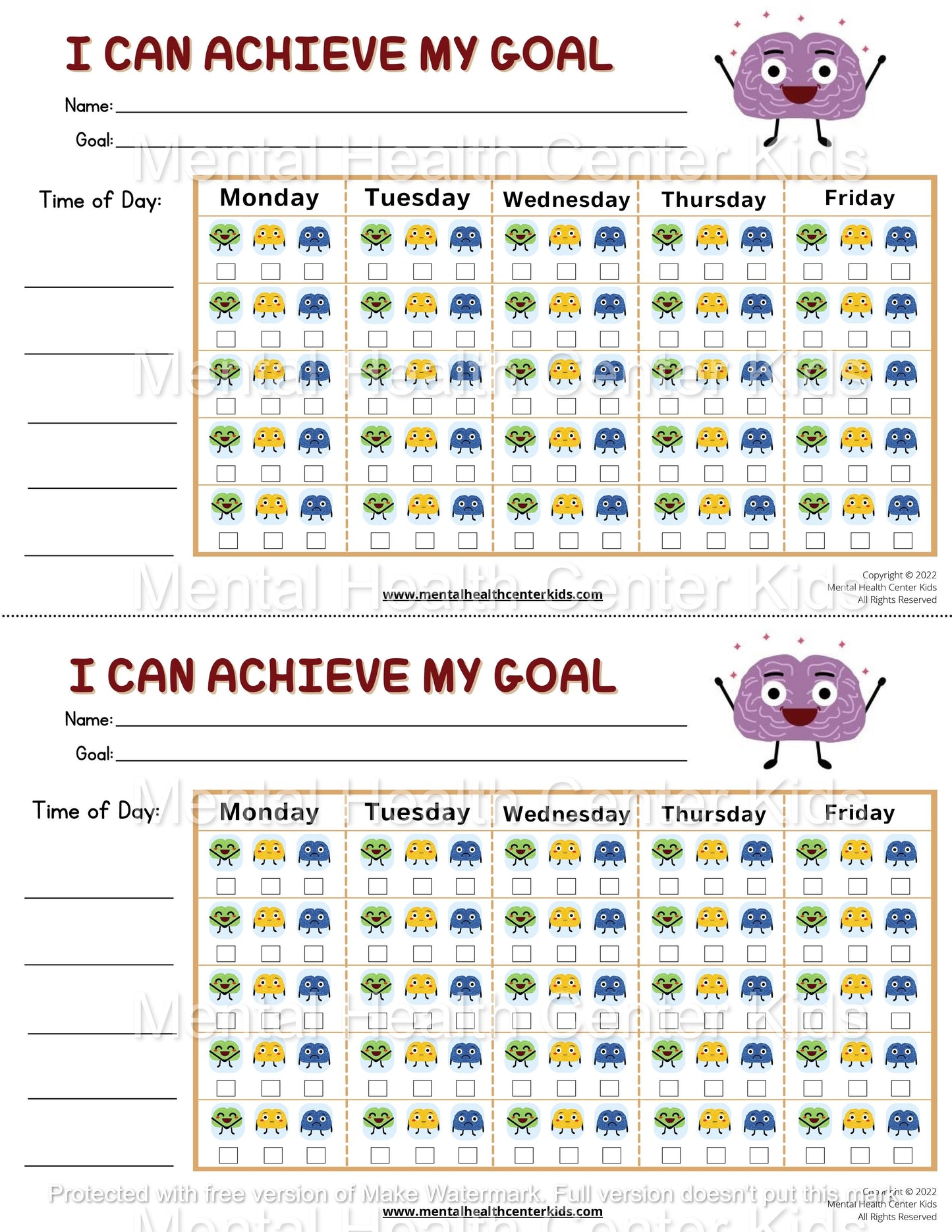
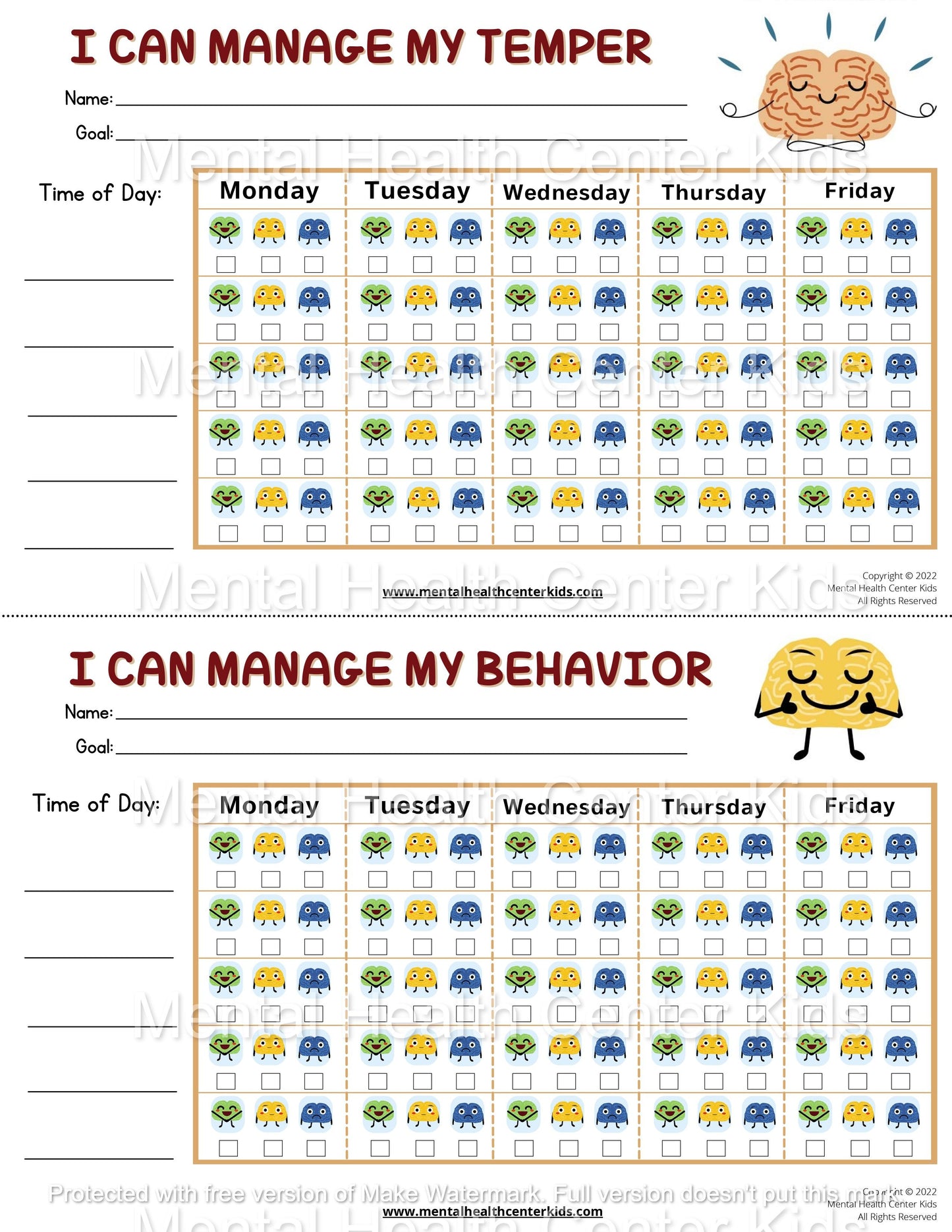
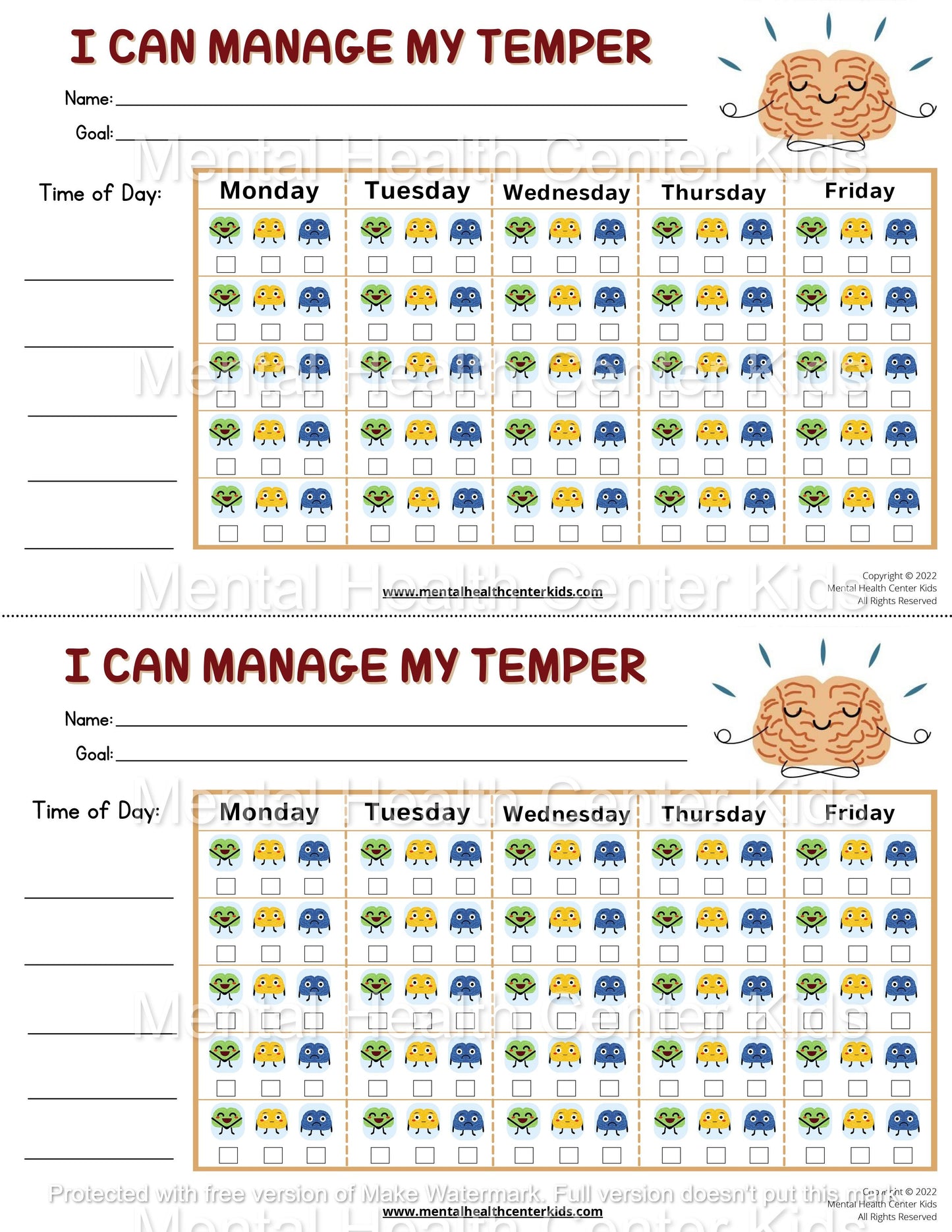

A weekly anger, behavior, and goals tracker is a table that keeps track of how a child or teen feels, and what they want to achieve each week. It resembles a personal map where they can mark their emotions and progress daily. With it, they can remember times when they felt angry, understand how they act, and plan goals they can achieve.
The Weekly Anger, Behavior, and Goals Tracker worksheet is a simple tool for kids and teens to better manage their temper and behavior, and reach any positive goal they have in mind. There are two charts available for friends or classmates to work on.
Using this tracker, young people can actively manage their temper and behavior, while also making progress toward their positive goals. Imagine if a friend is holding onto grudges or keeping their anger inside – this tool shows them a picture of their week, so they can think about it and understand their feelings better.
After answering the worksheet, a helpful tip is for them to find a quiet space and take a few deep breaths when they feel upset. For example, if the worksheet shows they get upset a lot during homework time, they can use the tip by taking a short break, doing a quick breathing exercise, and then resuming their homework when feeling calmer.
*This item is an instant digital download. A link to download your files will be emailed to you once payment is confirmed.
Want more resources like this? Check out our full catalog of anger management worksheets and handouts.
References:
- Fernandez, E., & Beck, R. (2001). Cognitive-behavioral self-intervention versus self-monitoring of anger: Effects on anger frequency, duration, and intensity. Behavioural and Cognitive Psychotherapy, 29(3), 345-356. https://doi.org/10.1017/s1352465801003071
- Wilkowski, B. M., Robinson, M. D., & Troop-Gordon, W. (2010). How does cognitive control reduce anger and aggression? The role of conflict monitoring and forgiveness processes. Journal of Personality and Social Psychology, 98(5), 830-840. https://doi.org/10.1037/a0018962
- Instant digital download
- File: Fillable PDF
- Size: 8.5" x 11"







